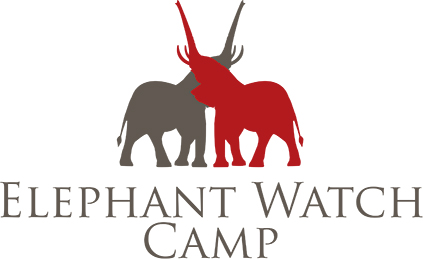FREQUENTLY ASKED QUESTIONS
WHAT IS THE WEATHER LIKE?
- The days are generally hot and dry with nights a bit cooler. Average maximum temperatures are around 30°C (85°F) with lows of about 20°C.
- We have two rainy seasons – one long and one short. In between it’s hot and dry. The long rains run from end of March to early May, and the short rains are mostly in November. Maximum rainfall is about 350mm. In the cooler months, look out for elephants smeared in white clay walking through fields of purple flowers, who will have come in from Shaba National Reserve, close by.
- Sunrise and sunset, full moons or infinite skies glittering with stars are celestial moments that we like to take time to enjoy.
- Altitude: 800 (2,600ft) to 1230m (4,000ft) above sea level.
WHAT SHOULD I PACK?
- Lightweight clothes, a hat, binoculars, sunglasses and mosquito repellent.
- Loose trousers, a kaftan or dress for the evening, and a shawl or fleece for cool early morning game drives.
- Sunscreen, creams, a basic medi-kit, and a good torch.
- Comfortable lightweight walking shoes or sneakers are best for hiking, and slip-ons or sandals for use in camp.
- Cameras and videos to capture the incredible scenes, or paints and brushes for artists.
WHAT IS THE FOOD LIKE?
- The food is best described as Italian-bush-gourmet, using local produce from the foothills of Mt Kenya or our organic farm in Naivasha, and spiced with fresh herbs from the camp’s organic garden.
- Bread, pasta and ice creams are made on site.
- The camp has a seasonal menu.
- Please inform us of any dietary requirements or allergies prior to arrival.
CAN I DRINK THE WATER?
- Bottled water is available free of charge. Water is brought to Elephant Watch Camp in large recyclable containers. As a stand against pollution, we discourage the use of plastic bottles. You’re welcome to bring a refillable bottle, and please recycle any plastics.
- A thermos of cool drinking water can be found in each bedroom, and is served at meals.
WHAT ABOUT MY HEALTH? WHAT VACCINATIONS DO I NEED?
- Full medical and travel insurance is recommended.
- Samburu is a malaria area. Preventative malaria medication is recommended.
- Flying Doctors evacuation service is recommended – we can sign you up for a small fee.
- We recommend you get all your vaccinations up to date in good time before departure. A yellow fever vaccination is imperative and required no less than 10 days prior to travel if you are coming from or have been to a country with risk of yellow fever.
DO YOU HAVE ELECTRICITY IN THE CAMP?
- The camp runs fully on solar power. The main charging area is in the Mess Tent, with British style three pin plugs.
- We cannot run hairdryers or curlers on the solar system.
- Guests are recommended to bring converters & universal plug adapters.
IS THERE MOBILE NETWORK OR INTERNET?
- Mobile phone network is available through Safaricom/Vodaphone and Airtel.
- Wi-Fi is available.
WHAT LANGUAGES DO YOU SPEAK?
- All guides speak English and Kiswahili.
- Samburu is spoken among the Camp team.
HOW CAN I PAY?
- All payments for accommodation, travel and transfers should be arranged in advance with the Elephant Watch Portfolio booking office in Nairobi.
- A card machine is available in camp for any extra purchases or tips if you are short on cash. However, a 3% fee will be added to all visa payments (both debit and credit) to cover bank charges. American Express or travellers’ cheques are not accepted.
- Please note that US dollar notes issued before 2007 are not valid in Kenya.
SHOULD I TIP? HOW MUCH?
- Tipping staff is a custom in Kenya and very much appreciated. A lot of people you don’t see are working hard to make your stay as agreeable as possible. We operate a communal tipping system at Camp that is distributed to all staff at the end of the month.
- A recommended tip is $15-25 per guest per night.
DO I NEED A VISA?
- You can get a visa at the Kenyan High Commission or Embassy in your home country, or at Jomo Kenyatta International airport on arrival in Nairobi for most nationalities.
- A fee of US$50 is charged for a single entry visa, and US$100 for multiple entry visas either to Kenya or East Africa. Note that multiple entry visas are NOT issued on arrival, only at the Kenyan representative office in your home country. Visas on arrival must be paid for in cash in foreign currency. Credit cards are not accepted.
- Your passport should be valid for a minimum period of six months from the date of entry into Kenya. Make sure you have two blank pages in your passport on arrival.
- Please check the following websites for more information on visa requirements: http://www.kenyaembassy.com/visa.html, or, https://www.gov.uk/foreign-travel-advice/kenya/entry-requirements
DO WILD ANIMALS COME INTO THE CAMP? ISN’T THAT DANGEROUS?
- During the day you are likely to see the following animals as you relax in Camp – elephants, vervet monkeys, baboons, mongooses, ground squirrels, monitor lizards, agama lizards, crocodiles, Verreaux eagle owls, vultures, Hadada ibis, Egyptian geese, brown parrots, grey-headed kingfishers, red or yellow-billed hornbills, and a plethora of song birds like emerald-spotted wood doves, superb starlings, and slatey-coloured boubous.
- At night genet cats, civet cats, porcupines, galagos, African wild cats, hyena and leopard are common visitors, and tiny little Scop’s owls call “trrruk” in the trees every six seconds.
- On rare occasions we’ve had lion and wild dog passing through camp.
- Snakes and scorpions are present but rarely seen.
- During the day you are unlikely to encounter any dangerous animals. At night, a warrior will escort you between your tent and the dining area, and please use your flashlight at all times. Your safety is our primary concern.
